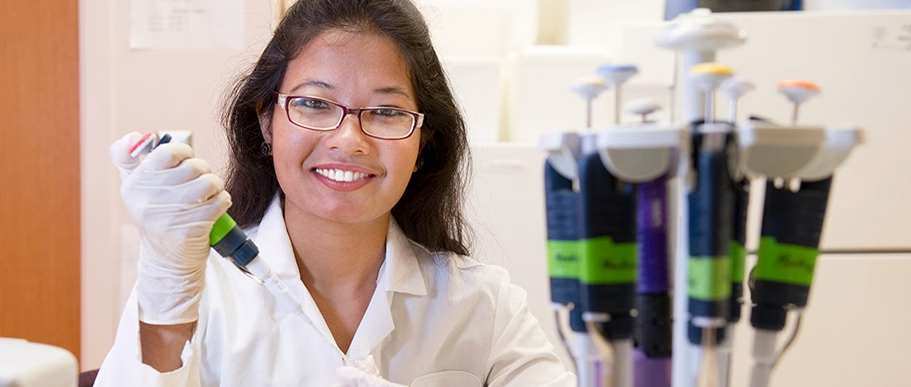The mission of the Biotechnology Program is to provide cross-disciplinary education and training in twenty-first century concepts and biotechniques to a diverse group of regional, national and international students. The Program prepares a cadre of professionals for careers in the diverse industries being revolutionized by Biotechnology and prepares its graduates for advanced education. Through coursework, laboratory work and other academic experiences such as internships, students advance their critical thinking skills, and master the technical skills necessary to solve complex biological problems.
At West Virginia State University, you will learn state-of-the-art Biotechnology as you conduct research that addresses environmental, agricultural, and bio-medical problems. Our program provides instruction in the broad field of Biotechnology, as well as specialized training in the many sub-disciplines of Biotechnology.
The West Virginia State University Biotechnology Graduate Program is housed within the Department of Biology and offers both MA and MS degrees. It consists of 14 Ph.D. faculty and some 20 students. In addition, our affiliation with the Research Scientists of the Gus R. Douglass Institute for Land Grant Research provides opportunities to choose from a surprisingly diverse variety of research projects.
Biotechnology Program Core courses (12 credits)
- BT 555 Statistics 3 credits
- BT 567 Current Concepts in Biotechnology – 3 credits
- BT 571 Techniques in Biotechnology I – 2 credits
- BT 572 Techniques in Biotechnology II – 2 credits
- BT 511 Biotechnology Seminar – 2 credits (1 credit each semester, taken for two semesters)
MA degree requirements
- 36 credits
- 12 credits of biotechnology program core courses
- 24 credits elective classes
- No thesis required
- A minimum of two sections of graduate teaching experience (even if you’re not a GTA)
- Written and/or oral comprehensive examination over the course work
Because all Graduate Students are required to teach at least two sections, and because many Graduate Students will be employed as Graduate Teaching Assistants, we strongly encourage all Graduate Students to enroll in the elective “Seminar for Teaching Assistants” (BT 501, 1 credit) as early in the Program as possible. One credit of BT 501 counts as a Biotechnology elective.
To apply, please download the application below.
